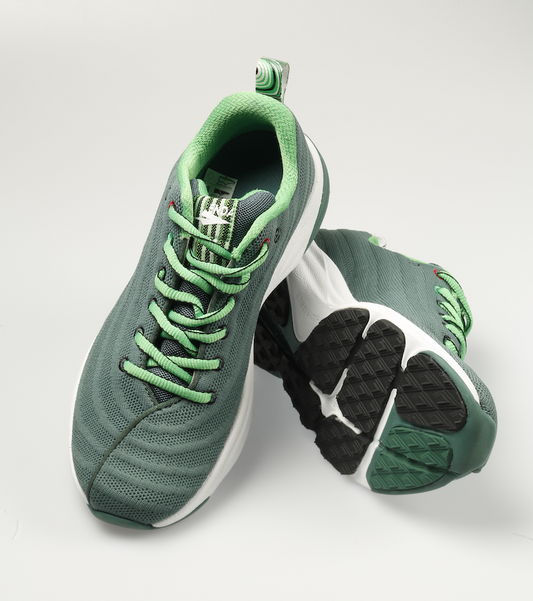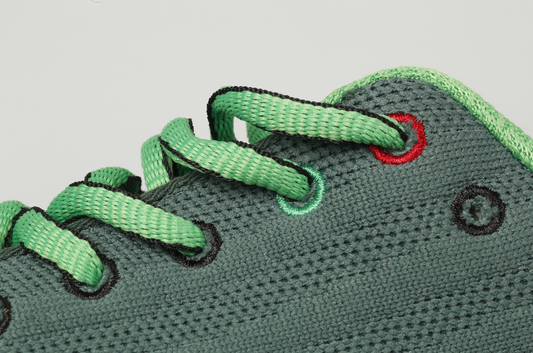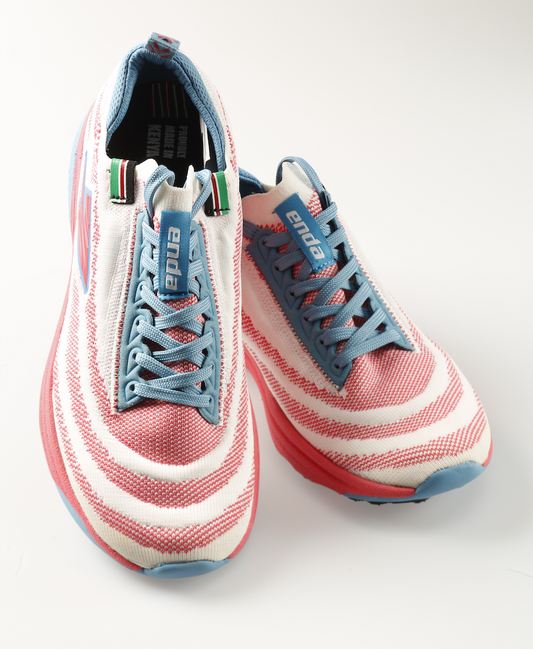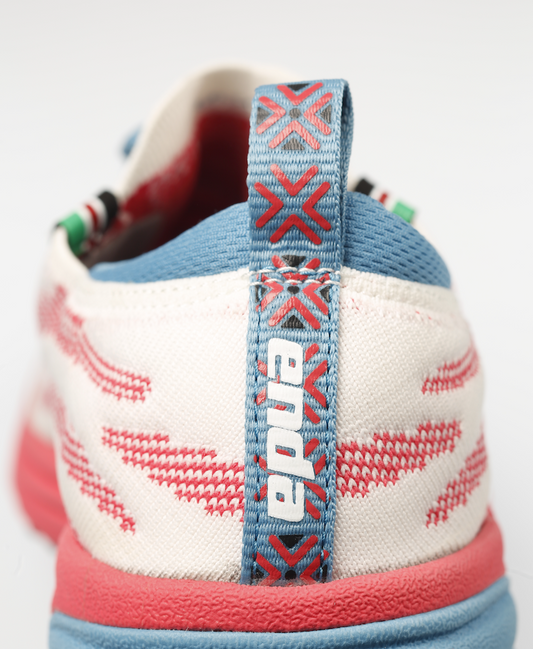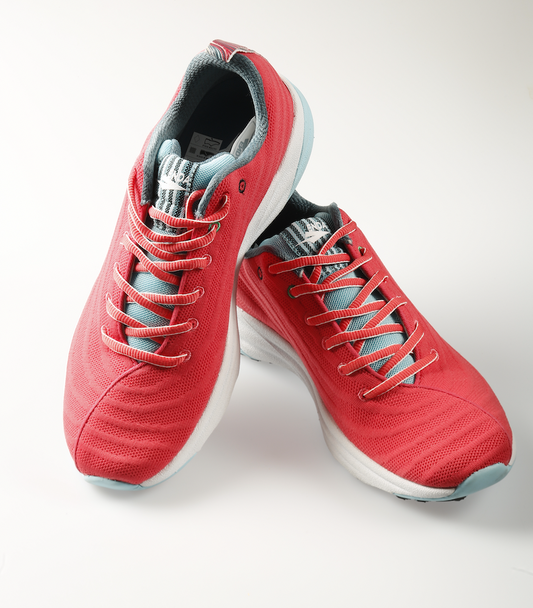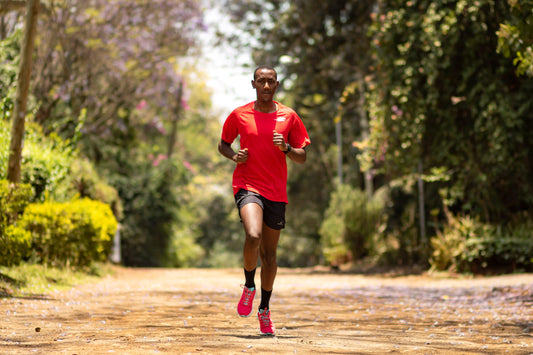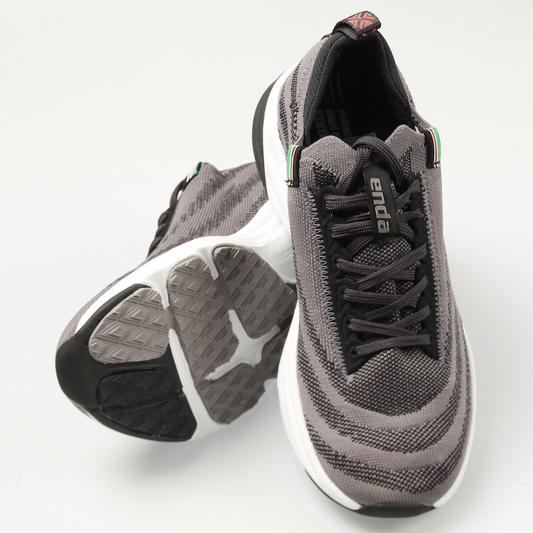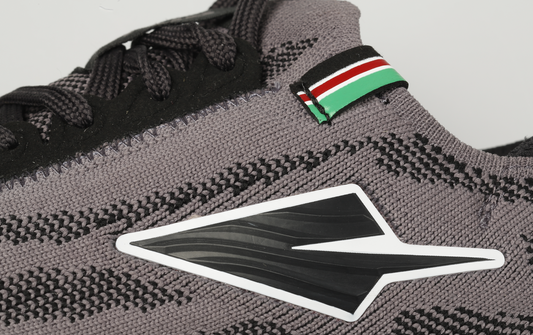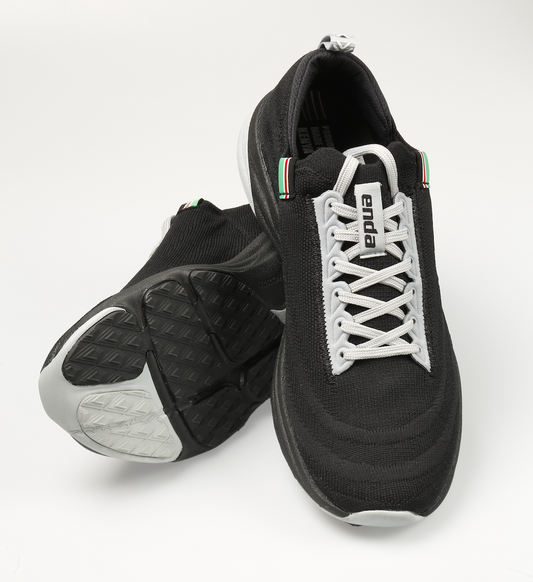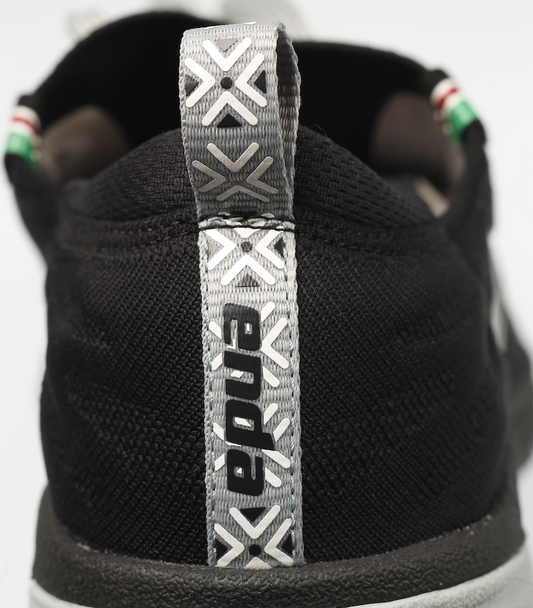The fastest runners in the world come from? That's right - from Kenya. Running legends like Mary Keitany and David Elisha or Eliod Kipchoge, who currently hold the world record for the marathon distance with just over two hours. They all ran their best times in shoes from major international brands. Running shoes 'Made in Kenya'? So far none.
Until now. Because fast shoes are now also coming from the land of the fastest runners: 'Enda' is the name of the running shoe brand of the startup of the same name.
'Enda' means 'run!' in the national language of Kiswahili. The shout that fans use to cheer on their athletes, especially in the last few meters. The company is based in the Rift Valley, the training stronghold of the Kenyan professional running scene. Because at Enda, runners develop for runners. "The athletes are the experts, they know best what makes a good running shoe, so we work together with local runners when developing our shoes," says Enda founder Navalayo Osembo-Ombati.
Bringing out a new edition of the models again and again, as is usual in the industry, Osembo-Ombati doesn't think much of that. "What really matters is consistent training." The focus is on the performance of the shoes, Enda's trademark are particularly durable soles.
In terms of design, all elements are Kenya-inspired. The logo resembles the tip of a spear, the country's traditional hunting weapon. Red and green lace eyelets represent the colors of the Kenyan flag. Kitenge, a typical fabric in East Africa, is used in the heel, while the upper has the typical Kikoi pattern. And on the midsole is the word 'Harambee' - 'Let's all pull together.' Kenya's first President Jomo Kenyatta launched a social self-help movement under the motto, which still plays a major role in the lives of Kenyans today.
Also for Enda boss Osembo-Ombati. The 33-year-old chartered accountant herself comes from the Rift Valley. For a long time she thought about how the importance of running could be used to improve living conditions. In Kenya, running is part of the national identity. At the same time, running is often the only chance for young people to escape poverty. When Osembo-Ombati met the American Weldon Kennedy, an expert in social campaigns who has lived in Kenya for years, they considered: How can the country also benefit economically from the success of its runners?
This is how the idea came about to produce the first running shoe brand 'Made in Kenya'. In 2016 Osembo-Ombati and Kennedy founded their company Enda, they got the necessary capital from their families and friends. However, finding large investors was difficult. Kenyan investors believe in real estate and the country's booming tech startup scene, but not in consumer goods startups. International investors and venture capitalists, on the other hand, were not convinced by the business model. Osembo-Ombati and Kennedy kept hearing why sports shoes are produced in Africa. Why not have them manufactured in China and Vietnam like the big global sports brands?
The Enda founders raised 140,000 US dollars via crowdfunding, which they used to develop and produce their first model. The runners in the Rift Valley trained with the prototype, gave their feedback after each run, and the Enda team directly implemented the runners' requests and suggestions. The fact that a running shoe 'Made in Kenya' came onto the market in Kenya convinced the skeptics, and five local investors gave a total of 350,000 US dollars. Enda's production facility is a former sandal factory that has been derelict for years. In addition to the factory, Enda also took over many of the former workers, and the young company now employs over 100 people.
"People's living conditions can only improve with more jobs," says Osembo-Ombati, "a country can only develop with a strong production sector."
Enda still purchases some components of the shoes from China because they are not produced in Kenya. Not yet. "Our goal is to manufacture everything ourselves very soon in order to offer 100 percent 'Made in Kenya'," says Kennedy. More production, more jobs, more investment - Kenya needs companies like Enda. Manufacturing companies currently only generate a tenth of the gross domestic product and provide only eleven percent of all jobs. The government wants to push the sector, but the hurdles for founders are high, above all there is a lack of capital. Osembo-Ombati and Kennedy plan to use part of their profits to support other startups. “Enda is a social enterprise,” says Osembo-Ombati. “The people in Kenya should benefit from everything we do.”


